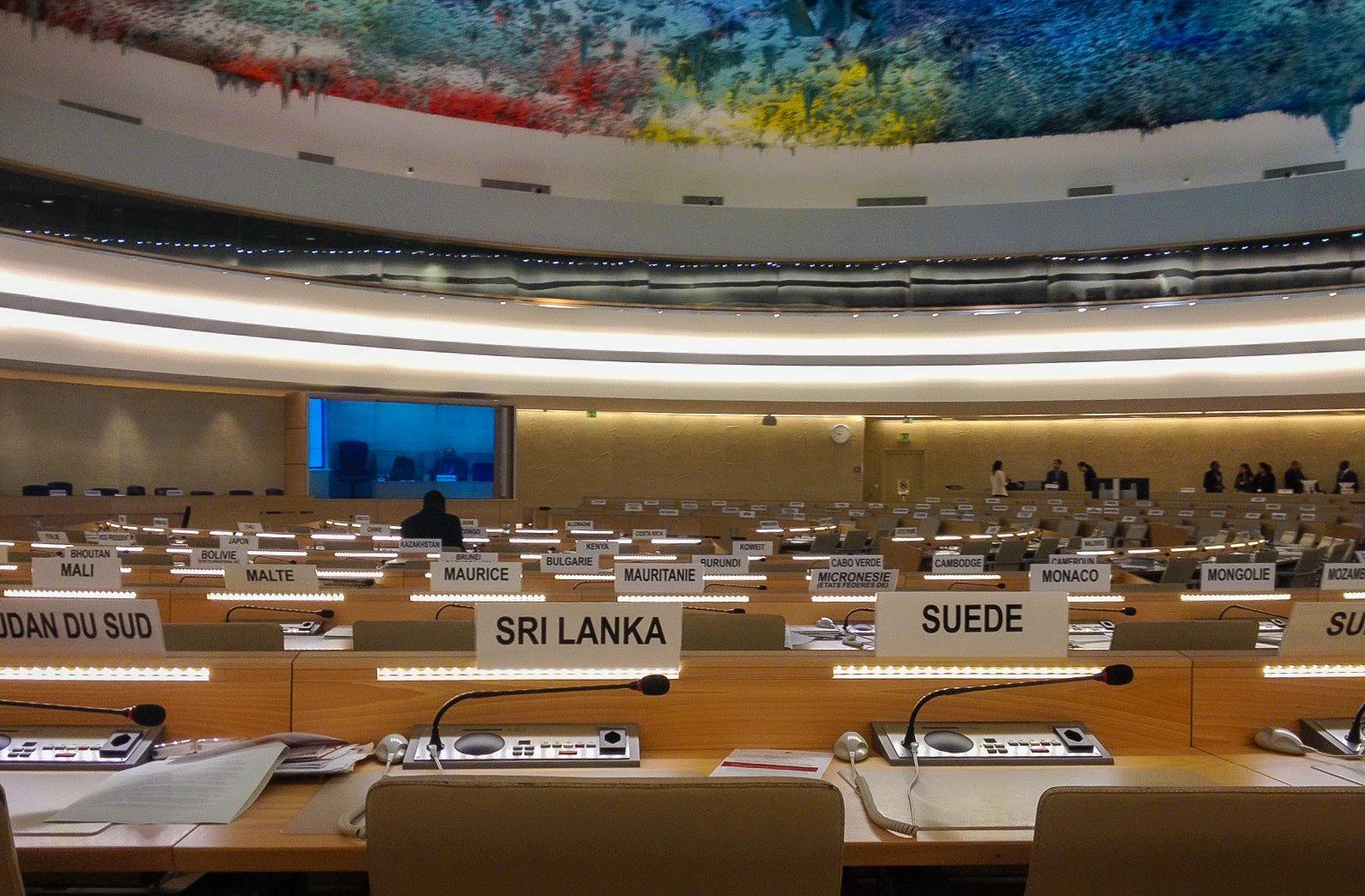
A draft United Nations Human Rights Council resolution on Sri Lanka has called on the Office of the High Commissioner for Human Rights “to consolidate, analyse and preserve” evidence that could be used in future war crimes trials, as it noted the lack of accountability for mass atrocities through domestic mechanisms and called for enhanced “monitoring and reporting on the human rights situation in Sri Lanka”.
The resolution, made public this morning, “notes the persistent lack of accountability through domestic mechanisms” and slams Sri Lanka’s newly announced domestic Commission of Inquiry as lacking independence and not including an accountability mandate.
The resolution goes on state that it,
“Decides to strengthen the capacity of the Office of the High Commissioner for Human Rights to consolidate, analyse and preserve information and evidence and develop possible strategies for future accountability processes for gross violations of human rights or serious violations of international humanitarian law, to advocate for victims and survivors, and to support relevant judicial proceedings in Member States with competent jurisdiction”.
The concluding operating paragraph requests that the Office of the High Commissioner to “enhance its monitoring and reporting on the human rights situation in Sri Lanka, including progress on reconciliation and accountability”.
It sets a deadline for March 2022 for “a written update to the Human Rights Council” and a “comprehensive report including further options for advancing accountability” later that year.
The resolution does, however, fall far short of the UN High Commissioner’s own report released earlier this year, which called on member states to consider “asset freezes and travel bans” on Sri Lankan officials accused of human rights abuses and consider “steps towards the referral of the situation in Sri Lanka to the International Criminal Court”. The path to universal jurisdiction, which could see Sri Lankan war criminals tried in courts around the world, is also alluded to with the resolution calling on the Office of the High Commissioner to “support relevant judicial proceedings in Member States with competent jurisdiction”. The High Commissioner had earlier called on member states to prosecute Sri Lankans accused of crimes in “before their own national courts”.
'Fundamentally weak and extremely disappointing'
File photograph: Tamil families of the disappeared protest in the North-East
Many Tamil activists expressed disappointment at the draft, with many lobbying for the mandate of a stronger international accountability mechanism that will finally see perpetrators of mass atrocities brought to justice. It has been almost 12 years since tens of thousands of Tamil civilians were killed in a military offensive by the Sri Lankan state, which saw hospitals bombed, widespread sexual violence and executions of those attempting to surrender. Many of those that led the offensive remain in senior positions, including Sri Lanka's president, prime minister, army chief and defence secretary.
"The draft resolution is most fundamentally weak and extremely disappointing," said former Senior Lecturer in Law at University of Jaffna, Dr Kumaravadivel Guruparan. "All it does is a) call for the strengthening of the capacity of the OHCHR office to consolidate and analyse evidence and b) for OHCHR to devise strategies for accountability - and for this to go on for 18 months. There is no need for a resolution to do this. OHCHR can do this even without a resolution."
"The Core Group has not taken the recommendations of the High Commissioner seriously and has ignored calls from victims for decisive action," he added referring to the member states leading the draft. "The core group lacks the political will to do what is necessary. Weak resolutions will embolden Sri Lanka."
'Serious concern over emerging trends'
In addition to accountability for mass atrocities, the resolution also "expresses serious concern over emerging trends over the past year, which represent clear early warning signs of a deteriorating human rights situation in Sri Lanka”.
It highlighted the “accelerating militarization of civilian government functions, erosion of the independence of the judiciary and key institutions responsible for the promotion and protection of human rights, ongoing impunity and political obstruction of accountability for crimes and human rights violations in “emblematic cases”, policies that adversely affect the right to freedom of religion or belief, surveillance and intimidation of civil society and shrinking democratic space, arbitrary detentions, allegations of torture and other cruel, inhuman degrading treatment or punishment and sexual and gender based violence, and that these trends threaten to reverse the limited but important gains made in recent years and risk the recurrence of policies and practices that gave rise to the grave violations of the past”.
The UN human rights chief Michelle Bachelet, said she was “deeply concerned” by the situation in Sri Lanka, which represents “clear early warning signs of a deteriorating human rights situation and a significantly heightened risk of future violations, and therefore calls for strong preventive action”.
She warned that the “seeds of future violence and conflict” were being sown in Sri Lanka, a call echoed by a number of former UN officials and international experts this week.
See the full text of the draft resolution here.
